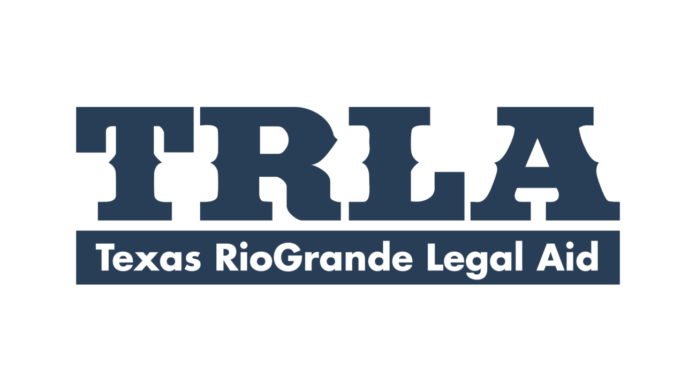A South Texas organization providing free legal assistance announced they received a generous grant on Tuesday. It will help bolster services that provide lawyers for people facing eviction, even as a CDC-imposed moratorium on that process is in effect.
The Texas RioGrande Legal Aid, which provides free or low-cost civil legal services in Texas, received a $400,000 grant from Wells Fargo Foundation. The funding will keep them operational as they help people in South Texas facing eviction during the pandemic.
The global health crisis stripped many of their employment, wages and health, and left tenants in precarious financial situations. To protect them from losing their shelter, the director of the Centers for Disease Control and Prevention signed a federal order into effect Sept. 4 through Dec. 31, but evictions continue.
“Unfortunately, some landlords and JP (justice of the peace) courts have not recognized the validity of the moratorium. So, it needs to be explained,” TRLA Communications Director Robert Elder said.
Not everyone is protected from evictions. The federal order only applies to people who meet five eligibility requirements.
According to the CDC frequently asked questions, a “covered person” is defined as someone who has “used best efforts to obtain all available government assistance for rent or housing.”
They must also earn no more than $99,000 a year, $198,000 if filing a joint tax return, wasn’t required to report income in 2019, or received an Economic Impact Payment (stimulus check).
To qualify, the person must be unable to pay the full rent or house payment due to loss of income, work, wages, or extraordinary out-of-pocket medical expenses.
They must also show they are trying to make “timely partial payments that are as close to the full payment as the individual’s circumstances may permit, taking into account other nondiscretionary expenses.”
Lastly, the moratorium FAQs is described to apply when “eviction would likely render the individual homeless — or force the individual to move into and live in close quarters in a new congregate or shared living setting — because the individual has no other available housing options.”
Misinterpreting the eligibility requirements or oblivion to these orders could leave tenants and their families homeless.
TRLA attorneys can step in and fill in the knowledge gap between tenants and their rights.
“Landlords and commercial property owners have an inherently greater base of knowledge of property laws and housing laws,” Elder said, adding, “It’s important to equip tenants with tools they need to assert their rights.”
The money will be divided into two years with $200,000 per year. TRLA attorneys hope to use the opportunity to guide tenants through the eviction legal process.
“It’s not a simple process but neither is it particularly complex,” the Elder said.
Elder stressed their services will not help cover rent or mortgages. However, there are resources in each Rio Grande Valley county dedicated to offer financial assistance.





